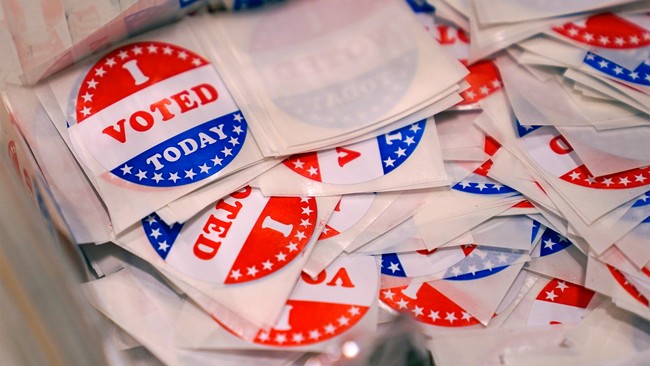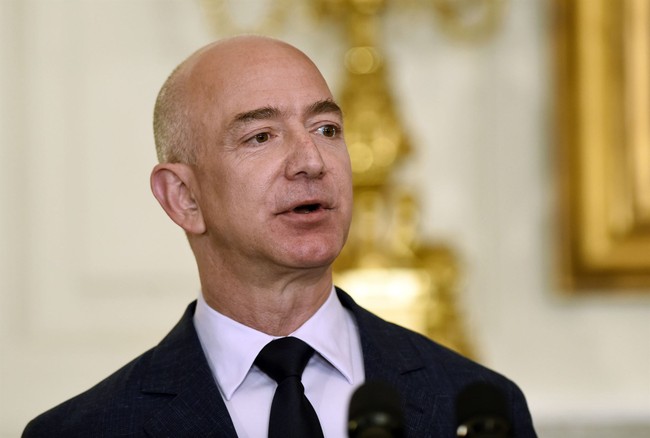Concerns With California’s Voting System Sure Are Something Else, House Hearing Reveals


On Tuesday, the Committee on House Administration held a hearing to look into “Why the Wait? Unpacking California’s Untimely Election Counting Process.” California is our nation’s most populous state, yet they don’t fare well when it comes to counting their votes in a timely manner. In fact, as Chairman Bryan Steil (R-WI) highlighted during his opening statement, it wasn’t until December 4 that the Associated Press called all the races in the state. “The longer it takes to provide the results of an election, the more voters can lose trust and become frustrated with the process,” Steil warned, leading to the day’s hearing.
As Steil mentioned, 155 million Americans cast their ballots for a variety of races in the 2024 election across the country, with over 16 million votes coming from California.
The reasons for the delay look to be of California’s own making, with a universal mail-in ballot system, which Steil lamented “is prone to delays in voting, tabulation and, ultimately, calling of races.” Mail-in voting there has been available since 1982, though “state lawmakers have continued to expand the bounds of mail-in voting ever since,” Steil explained, so that universal vote by mail is in place for every election administered by the state, with every registered voter receiving a mail-in ballot,” he stressed. “In other words–every registered voter in California gets a mail-in ballot,” Steil explained. “This not only opens the door for potential fraud, but also causes delays on the counting side.”
It’s not merely universal mail-in ballots, though. California receives ballots up until seven days after Election Day. Witnesses also spoke to these concerns later on in the hearing, including how voters don’t even have to postmark their ballots. While questioning the witnesses later in the hearing, Steil expressed a concern on how California is “really blind” for seven days on the counting and who won.
Steil also reiterated his concerns with that seven-day timeline in his statement for Townhall. “California accepts ballots 7 days after the election. I believe all ballots need to be in when the polls close on Election Day. The hearing today highlighted how California’s policies leave voters in limbo and delay our election results,” he shared.
Chairman @RepBryanSteil delivers opening remarks at today’s full committee hearing ⬇️ pic.twitter.com/xc8Rti0v1y
— House Admin. Committee GOP (@HouseAdmin) April 29, 2025
While California may not be a swing state when it comes to the presidential or U.S. Senate elections, it’s thanks to the slow counting system that takes so long to find out which party controls the U.S. House of Representatives. Rep. Stephanie Bice (R-OK) later spoke about how it’s important to know that night if she’ll be serving for another term.
Steil addressed such an issue as he was speaking about his trip to Los Angeles three days after the election, during which he found out there were 900,000 ballots that needed to still be tabulated. “This is uniquely important because the balance in the House of Representatives still had not been determined in large part because races in California weren’t called due to the lax election laws that are resulting in these delays,” he shared. “The rest of the country should not have to wait on California to know the results of an election.”
Ranking Member Joe Morelle (D-NY) wished to spend his opening remarks claiming that the hearing was to do with outcomes Republicans don’t like, even as he himself acknowledged California could take steps to speed up elections. He also ranted and raved about President Donald Trump’s executive order requiring proof of citizenship to vote, which was blocked by a U.S. district judge last week, as well as the SAVE Act, which had passed the House earlier this month. He also wished to shift his focus on military voting, as was the case with the witness called by the minority, Rebecca Nowatchik of the Secure Families Initiative.
When questioning Nowatchik, Morelle stressed wanting to get it right over counting the results quickly, but states like Florida, where Steil had mentioned in his opening remarks, has a population of over 23 million, can count their ballots and announce their results that night.
Morelle made a lot more sense in comparison to some of his fellow Democrats, though. Rep. Norma Torres (D-CA), the lone Californian on the Committee and the last to speak, not only claimed that California is doing “just fine,” but also used her time, and then some, to rant about Trump and Elon Musk, necessitating a reminder from Steil that members must refrain from such personal attacks.
🚨DEM MELTDOWN!
Rep. Norma Torres gets VERY emotional about Trump’s First 100 Days — while spewing complete falsehoods and misinformation.
“President Trump and his cronies, like @elonmusk, do not care about the rule of law or the Constitution.”
“They’re destroying the economy,… pic.twitter.com/QK1Kf5HXTc
— Townhall.com (@townhallcom) April 29, 2025
Even still, despite how she claimed that California has “a sound” and secure system,” with “vigorous training and transparency,” as she emphasized that very California voter was able to have their voices heard, Torres admitted that the system was “frustrating.”
Another Democratic member, Rep. Terri Sewell (D-AL) lamented efforts to make it supposedly harder to vote. Like Morelle, she seemed to be of the mindset of getting the vote right rather than get them done quickly, such as that same night.
One of the witnesses during his opening remarks, Austin Gilbert, who is a campaign field operative and consultant in California, criticized the state’s focus on “voter access over efficiency, effectiveness, and safety.” He also focused on how “slow” the process is, which is how he’d describe the system in one word. Gilbert believes the “processed was designed to be slow from the beginning” with the Voters Choice Act that passed in 2016 in California to move the voting system to mail-in ballots.
When it comes to other states being able to count faster, and Democrats’ concepts of wanting to simply be getting it right, Gilbert had also shared how the system “immediately slows results from being disclosed to the public, as elections offices don’t even receive an accurate count of the total votes cast until most of the nation has finished counting.”
As part of what he said had to do with the “centralization” of such a system, Gilbert described a very long and involving process, including and especially when it comes to “the ballot sorting process.” As he emphasized, “vote centers are required to provide every single unique ballot, as any voter can vote at any vote center.”
There’s also “an extremely arduous signature verification process” in California that Gilbert spoke to. It’s far different from the original process and much more complicated.
And, there’s the security concerns plus the high cost of people receiving mail-in ballots. Further, there’s a lack of clean voter rolls, with voters having to update information if someone dies or moves away. There is “a massive security concern” of family members receiving ballots for those who have already died, with Gilbert adding that “it also adds to the extremely high cost of administering elections.” He noted that the undeliverable ballots in each elections office “usually surpasses the thousands.”
With these concerns and more, including ballots being able to received up to seven days after Election Day, as well as the 28-day curing period, Gilbert highlighted how this has “led to one of the slowest and most costly election processes in the nation.”
To conclude, Gilbert emphasized the problems with prioritizing access. “Prioritization of voter access has led to a lack of speed, security, and a diminishing trust in California elections over the last decade.” Does that sound like it’s as simple as getting the process done right over getting it done quickly and efficiently? If anything, it sounds as if California isn’t doing either.
Sewell not only encouraged early voting for Alabama, but she claimed her colleagues didn’t, even though Bice had just mentioned that idea earlier in the hearing, suggesting potentially more days of in-person voting.
Rep. Mary Miller (R-IL), also spoke with one of the witnesses, Donald Palmer, who currently serves as a United States Election Assistance Commission (EAC) Commissioner. Palmer, who is also a former Secretary of the Virginia State Board of Elections, explained that there is a strong contrast between the two states.
California should adopt preprocessing, early voting, and an Election Day deadline, Palmer suggested. As he had said during his opening statement, 33 states require ballots to be received by Election Day. When it comes to the issues he sees with mail-in ballots, this has to do with the processing, especially with California having such a large population. He also spoke throughout the hearing of how there’s far too much reliance on the U.S. Postal Service (USPS).
Gilbert similarly spoke to the problems with mail-in ballots and the USPS, including when Miller questioned him after Palmer. In further criticizing the Voters Choice Act, Gilbert pointed to how delivering mail-in ballots to everyone also incudes PO Boxes. He then described how about a month before Election Day, one could find a couple hundred ballots in the trash can, which he warned presented security issues.
The conclusion of Steil’s opening remarks ring true after the hearing as well. “We are looking at California today because they have continued to move the goal posts in their election policies,” he reminded. “California’s election administration highlights why Congress must conduct oversight of the states’ federal elections and determine whether it might be necessary to enforce baseline standards of election integrity.”
Editor’s Note: Every single day, here at Townhall, we will stand up and FIGHT, FIGHT, FIGHT against the radical left and deliver the conservative reporting our readers deserve.
Help us continue to tell the truth about the Trump administration and its major wins. Join Townhall VIP and use promo code FIGHT to get 60% off your membership.




